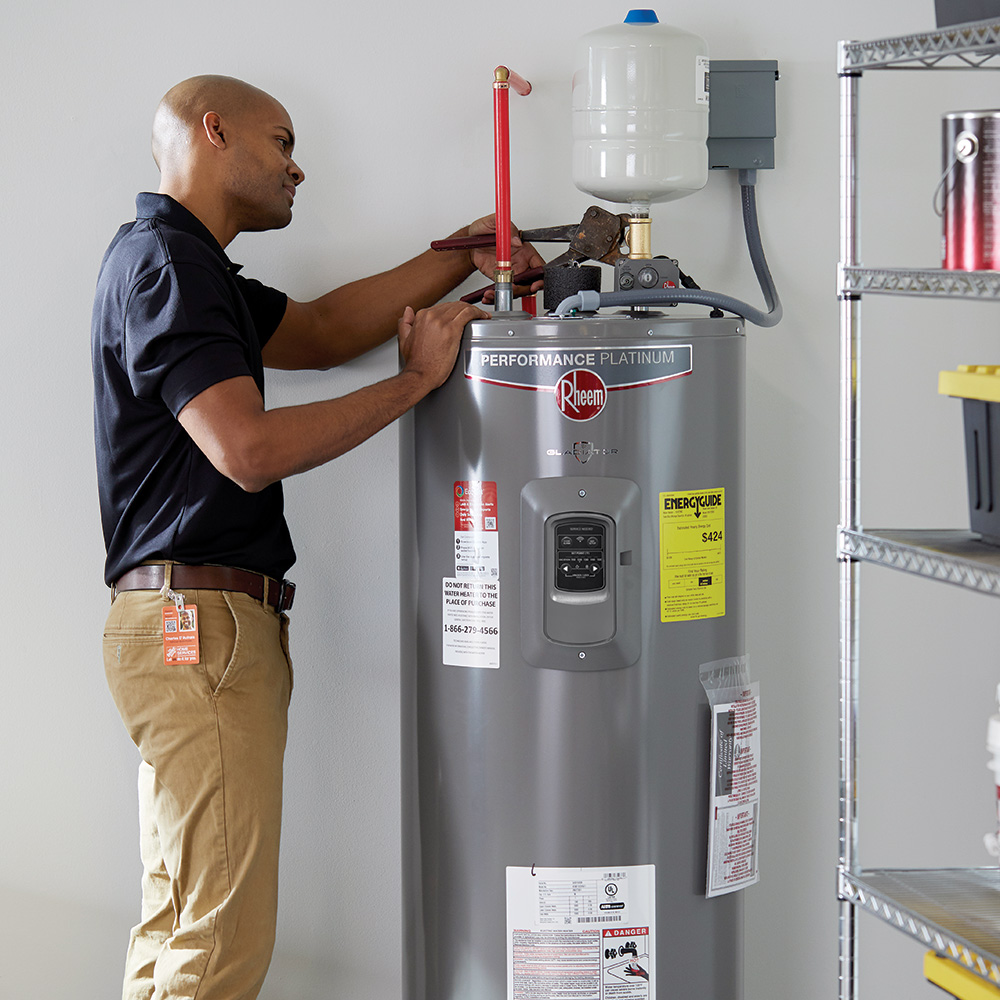Common Water Heater Complications
Common Water Heater Complications
Blog Article
The content which follows in relation to Water Heater Repair and Troubleshooting is exceptionally motivating. Give it a go and make your own personal final thoughts.

Visualize starting your day without your routine hot shower. That currently establishes a poor tone for the rest of your day.
Every house needs a dependable water heater, yet just a few know just how to manage one. One easy way to maintain your water heater in leading form is to check for faults regularly and fix them as soon as they appear.
Keep in mind to switch off your hot water heater prior to smelling about for mistakes. These are the hot water heater faults you are probably to experience.
Water as well hot or too cool
Every hot water heater has a thermostat that establishes just how warm the water obtains. If the water entering your house is also hot regardless of establishing a practical maximum temperature, your thermostat could be defective.
On the other hand, too cold water might be because of a fallen short thermostat, a busted circuit, or improper gas circulation. For instance, if you make use of a gas hot water heater with a damaged pilot light, you would obtain cold water, even if the thermostat is in excellent condition. For electrical heaters, a blown fuse might be the wrongdoer.
Insufficient warm water
Hot water heater come in lots of dimensions, relying on your warm water demands. If you run out of warm water before every person has had a bath, your hot water heater is too tiny for your family size. You need to think about installing a bigger water heater container or choosing a tankless hot water heater, which uses up much less space and also is a lot more resilient.
Odd sounds
There go to least five kinds of noises you can speak with a hot water heater, but the most typical analysis is that it's time for the hot water heater to retire.
First off, you ought to recognize with the normal sounds a water heater makes. An electrical heating system may sound various from a gas-powered one.
Standing out or banging noises typically suggest there is a slab of sediment in your storage tanks, as well as it's time to clean it out. On the other hand, whistling or hissing audios may simply be your shutoffs allowing some pressure off.
Water leakages
Leakages might originate from pipes, water links, shutoffs, or in the worst-case scenario, the container itself. Gradually, water will corrode the container, as well as find its way out. If this happens, you require to change your hot water heater asap.
However, before your modification your entire storage tank, make sure that all pipelines are in place and that each valve functions completely. If you still require assistance identifying a leakage, call your plumber.
Rust-colored water
Rust-colored water indicates one of your hot water heater elements is worn away. It could be the anode pole, or the tank itself. Your plumber will have the ability to recognize which it is.
Lukewarm water
Regardless of exactly how high you set the thermostat, you won't obtain any kind of warm water out of a heating system well past its prime. A water heater's effectiveness may reduce with time.
You will certainly additionally get lukewarm water if your pipelines have a cross link. This implies that when you activate a faucet, hot water from the heating system streams in alongside regular, cold water. A cross connection is easy to place. If your warm water faucets still run after closing the hot water heater shutoffs, you have a cross connection.
Discoloured Water
Corrosion is a major source of dirty or discoloured water. Deterioration within the water container or a failing anode pole might cause this discolouration. The anode rod shields the storage tank from rusting on the within as well as should be inspected yearly. Without a pole or an appropriately operating anode rod, the warm water quickly wears away inside the container. Get in touch with a specialist water heater technician to establish if replacing the anode rod will certainly take care of the issue; if not, replace your hot water heater.
Final thought
Ideally, your water heater can last one decade before you need a change. Nevertheless, after the 10-year mark, you may experience any one of these faults extra on a regular basis. Now, you should include a new water heater to your budget plan.
How To Troubleshoot 3 Common Water Heater Problems in Twin Cities
The Water Heater Is Leaking
A leaky cold water inlet valve A loose pipe fitting A leaky temperature and pressure relief valve A corroded anode rod A cracked tank Turn Off Your Water Heater:
Shut off your gas water heater by turning the gas valve on the unit to the “OFF” position. Shut off your electric water by switching its power off at your electrical panel. Look for a two-pole breaker labeled “water heater” and turn it to the “OFF” position. Move the ball valve connected to the water heater to be perpendicular to the piping at a 90° angle. Look for the Leak:
Depending on whether the water is coming from the tank's top or bottom, you’ll want to look for the leak in different locations.
If the leak comes from the top of the tank, carefully look for water escaping from the cold water inlet valve or loose pipe fittings. Rusted hot and cold water valves can have loose connections with the tank, with water leaking out of them.
https://mspplumbingheatingair.com/blog/how-to-troubleshoot-3-common-water-heater-problems
Hopefully you enjoyed our topic about Water Heater Repair and Troubleshooting. Thank you for taking a few minutes to read our posting. If you enjoyed reading our blog posting if you please remember to share it. Thanks a lot for your time. Visit us again soon.
Search no more; expert plumbers. Report this page